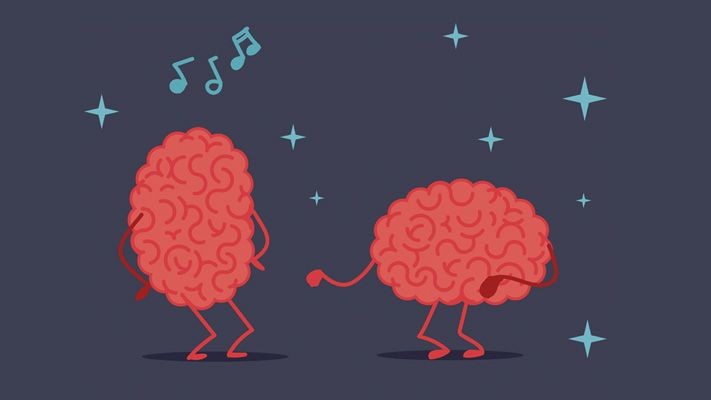Music moves with us through each step in the intricate dance of life, from our highest highs to our lowest lows. It’s a universal language that transcends speech barriers and connects with us on a profound, almost primal level. As Nietzsche said, “Without music, life would be a mistake.” Industry veteran Benjy Grinberg points out that it is a powerful tool that entertains and holds the key to an often underrated therapeutic avenue: our mental health.
The Harmony Of The Mind
An ever-growing body of research continues to draw links between music and its positive effects on mental health. Psychologists and neuroscientists have observed the perks of melody and rhythm in the human brain. Listening to music can trigger the release of dopamine, a neurotransmitter associated with the brain’s reward system, delivering feelings of joy and pleasure.
Music therapy, an established health profession for decades, uses these principles to actively support people in improving their health across various dimensions. It’s not just about listening; it’s also about creating, sharing, and engaging with music to address individuals’ specific needs, whether cognitive, emotional, physical, or social.
The Rhythm Of Relief
One of the most immediate benefits of music is its ability to reduce stress. When anxiety disorders are increasingly common, Benjy Grinberg explains that a calming tune can act as a counterweight to the pressures of daily life. Studies have shown that music with a slow tempo can be particularly soothing, helping to slow heart rate and lower blood pressure, contributing to reduced levels of stress hormones.
In clinical settings, music has been used to enhance the mood of patients undergoing high-stress treatments like surgery, chemotherapy, or during labor. The permeating quality of music allows patients to slip into a state of relaxation, making daunting procedures more manageable.
The Melody Of Memory
For individuals grappling with mental health issues such as depression, music can be an uplifting force that combats the persistent drag of low mood. It has the unique capability to conjure up emotions and memories that connect us with happier times, acting as a temporary escape from negative thoughts that often cloud the mind in depression.
Not only does music connect us back to pleasant memories, but it can also help create new ones. Engaging in musical activities, like singing in a choir or taking music lessons, has been associated with improved cognitive function, sharper memory, and greater self-esteem.
The Crescendo Of Coping
Music fosters emotional awareness and expression, which can be particularly beneficial for those who struggle to articulate their feelings. It can serve as an emotional outlet, helping individuals process complex emotions like grief or sorrow, which might otherwise be too intimidating to face directly.
Songwriting and composing allow these emotions to be channeled into something creative and tangible. For someone battling mental health issues, having this form of expression can be immensely therapeutic. It allows for a sense of control and achievement, aiding in coping with various conditions, such as PTSD or substance abuse.
The Symphony Of Social Connection
Beyond the individual, music creates communal bonds. It serves as a social glue, bringing together diverse groups of people and encouraging cooperation and empathy. Community music programs have shown tremendous efficacy in strengthening social ties and promoting social integration, further bolstering mental health.
People with mental health concerns often experience loneliness or isolation. Participating in group musical activities can break these barriers, allowing for feelings of support and belonging and reducing feelings of social anxiety.
The Tempo Of Treatment
It’s important to recognize that music isn’t a one-size-fits-all remedy. Like any therapy or treatment, what works for one person might not work for another. The choice of music can influence its therapeutic effectiveness. It’s about finding the genre and songs that resonate personally.
Music therapists are trained to tailor interventions that match individuals’ needs, preferences, and therapeutic goals. They work alongside doctors, psychologists, and other healthcare professionals, creating multi-dimensional treatment plans harmonizing with standard medical care.
Conclusion
The symphony of mental health is intricate, with various factors influencing well-being. Music emerges as a powerful healing tool. Immersing in its melodies, we nurture resilience, happiness, and self-connection. From lullabies to heart-mending ballads, music’s healing powers are timeless. Whether listening passively or engaging actively, music heals, unites, and uplifts. According to Benjy Grinberg, amid life’s challenges, music echoes hope—a melodic reminder of mental liberation.










